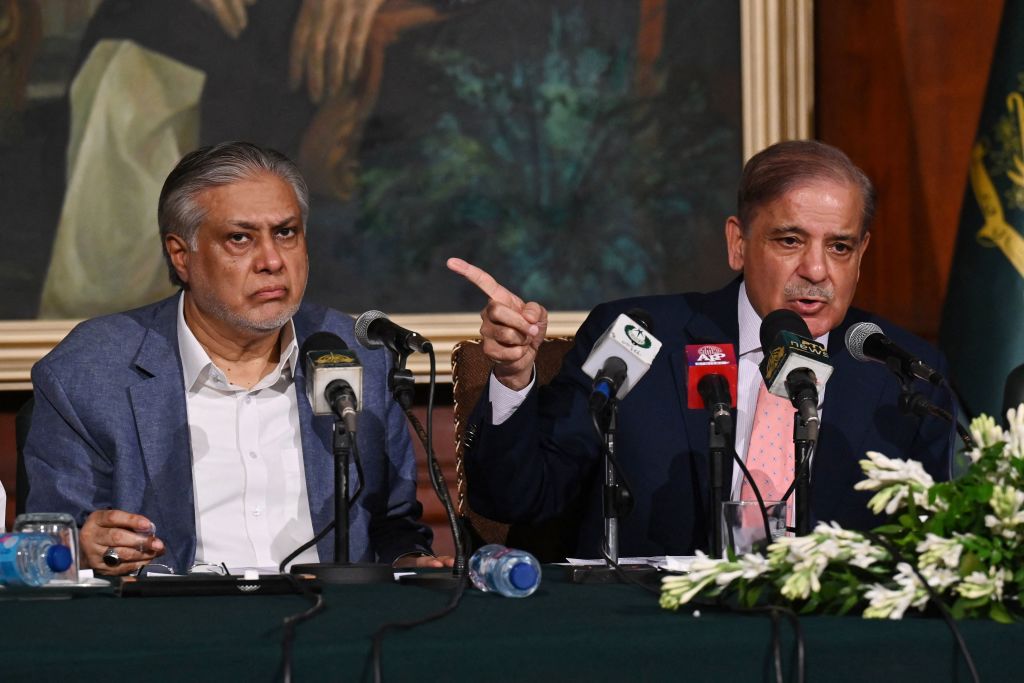- Sunday, November 24, 2024
The PML-N faces a hard decision between appointing a highly experienced, former banker Ishaq Dar as the finance minister and bringing in a new face out of political compulsions, said a Pakistani media report.

By: Shubham Ghosh
THE deadlock in Pakistan’s political arena since the conclusion of the February 8 national elections may find resolution through the establishment of a coalition government, but the nation’s economic concerns are likely to persist, chiefly due to the Pakistan Muslim League-Nawaz’s (PML-N) dilemma regarding the appointment of the finance minister for the financially strained country.
In January, the South Asian nation, facing acute financial challenges, received a second tranche of over $700 million from the International Monetary Fund (IMF) as part of the existing $3 billion Stand-By Arrangement (SBA) agreed upon in June of the previous year, amid mounting risks of default.
Recently, Fitch Ratings, a prominent global rating agency, underscored in its report the crucial role of a new IMF deal to replace the expiring SBA in March in shaping Pakistan’s credit profile. It’s notable that Pakistan has yet to fulfill the requirements of the last $6.5 billion IMF bailout package. Hence, the primary task awaiting the incoming finance minister is to engage with the global lender to secure the final tranche of $1.2 billion.
Read: Pakistan’s dynastic parties reach power-sharing deal; Imran Khan loyalists overlooked
He or she would also need to kick-start negotiations for a new long-term deal.
Almost two weeks after the February 8 elections that delivered a fractured mandate, there was a breakthrough late on Tuesday (20) night that could end the political impasse in the country.
Read: Understanding Pakistan’s post-election scenario
The PML-N and the Pakistan Peoples Party (PPP) have agreed on a power-sharing deal to form a new coalition government with the Nawaz Sharif-led party being the dominant partner. It is here at one of the most critical economic junctures that the PML-N faces a hard decision between appointing a highly experienced, former banker Ishaq Dar as the finance minister and bringing in a new face out of political compulsions, according to the country’s The Express Tribune newspaper.
The PML-N has not groomed second-tier economic leadership, and without Dar, it might end up relying on technocrats as was done by the PPP or by the former prime minister Imran Khan’s Pakistan Tehreek-e-Insaf (PTI) led governments.
“Any inexperienced appointee might find it difficult to sit across the table and negotiate a deal that strikes a balance between economic stabilisation and people’s growing miseries but bringing in a banker as a finance minister might raise questions about conflicts of interest,” the newspaper commented.
The PPP has publicly opposed Dar’s candidacy, but its opposition does not carry weight until the party formally joins the next cabinet.
However, the final decision would be made by former prime minister and PML-N supremo Nawaz Sharif, who has not yet shared his thoughts about his choice for the position.
Sources in the PML-N told the newspaper that the party is also exploring other options, including considering the names of two bankers but no names have been finalised. A strong camp in the PML-N is not in favour of appointing Dar to the post for the fifth time, sources said, adding,
“However, his name cannot be ruled out until Sharif shares his thoughts.” Dar has served as Pakistan’s finance minister four times and earned the reputation of a ‘tough negotiator’ with the IMF.
His relations with the IMF are now one of the reasons for the reconsideration of his appointment. But the dichotomy is that on the one hand, Dar has been credited “with completing the 2013-16 IMF programme” but on the other, “Pakistan could not successfully complete the last USD 6.5 billion bailout package, and the blame has been placed squarely on Dar for his handling of the programme,” the report said.
In his speech at the Senate Standing Committee on Finance on June 16, 2023, the former finance minister said that geopolitics was behind the stalled loan programme, as global institutions wanted Pakistan to default like Sri Lanka and enter negotiations.
The IMF has publicly denied this, while behind closed doors, the US had also complained about Dar’s statement.
(With PTI inputs)